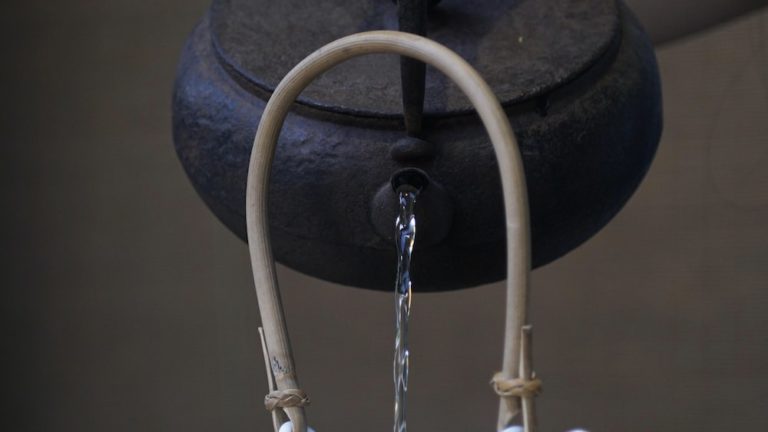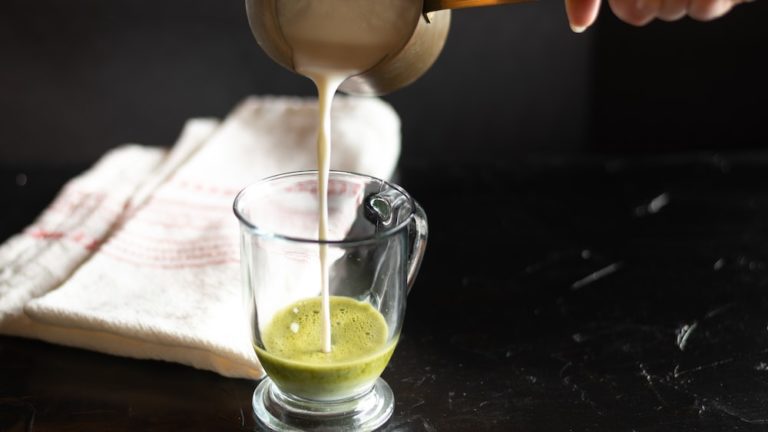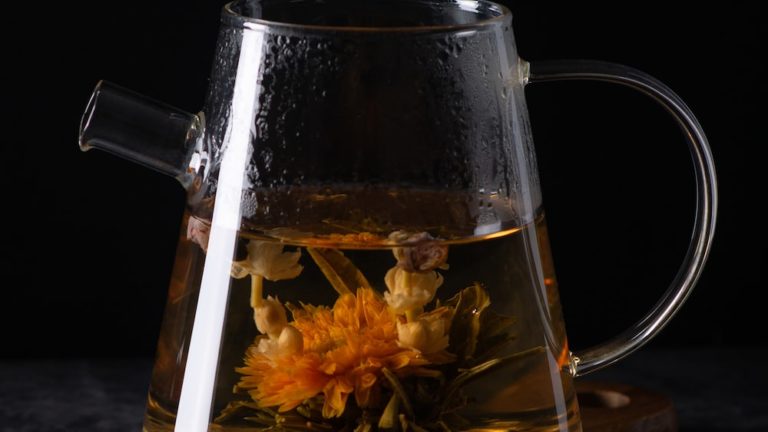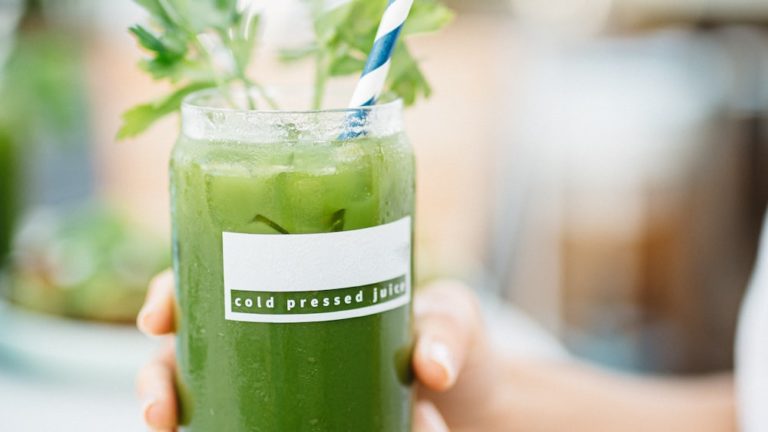Does Matcha Tea Break A Fast? The Ultimate Guide
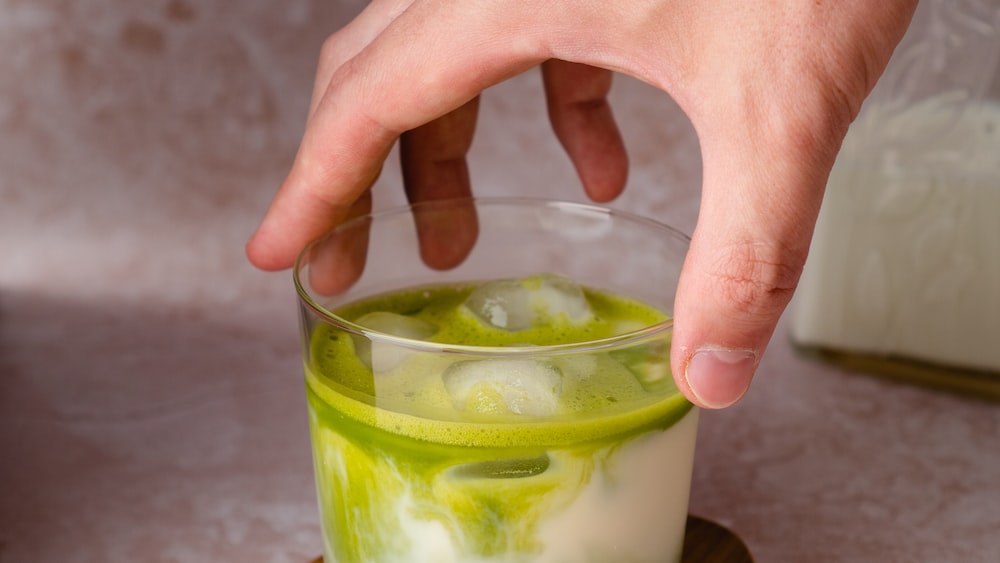
Does Matcha Tea Break A Fast? The Ultimate Guide
Welcome, precious tea aficionados and health warriors, to our humble tea coven. Let’s dare to dive into the frothy depths of a profound question that’s been tickling the tea leaves in our hearts. Ever woken up on a chilly morning amidst a fast, twitching a nose at a steaming cup of matcha, wondering if this leafy elixir might shatter your fasting vows like a ceramic teapot meeting a cold stone floor?
Perish those tremors of doubt! In our explorations today, we dive into examining this darling of the tea world that’s been wooing souls for centuries. From its emerald shores in Japan, take a sip of enlightenment as we examine whether matcha tea breaks your fast or proves to be the monk-like companion to your silent vow of abstinence.
Gather your well-worn tea cozies and send your favorite biscuits on a brief vacation, for we’re about to let the proverbial cat out of the bag, or shall we say, the matcha out of the tea tin!
Understanding Fasting and Matcha Tea
To march ahead in our quest, we first need to twist and turn two pieces of this intricate puzzle. The venerable act of fasting and the jade-hued hero of our story, matcha tea.
What is Fasting?
Let’s play a game of time travel! Fasting, dear friends, is an age-old practice that dates back as far as history’s eyes can see. Whether for spiritual epiphanies or tickling the health fairy, mankind has often courted the empty belly feeling.
Fasting, in simplest terms, is the willing abstinence from all or some kinds of foods and drinks for a specific period. From dusk until dawn or dawn until dusk, depending on your specific brand of faith or diet, the journey of fasting is like a prolonged visit to your favourite amusement park — minus the cotton candy and hot dogs, of course!
Intermittent fasting, its modern cousin, has taken the wellness world by storm. It’s like a cool makeover of its wizened ancestor. By juggling periods of eating and fasting, intermittent fasting aims to strike a delicate balance between nourishment and abstinence. Think of it like a sophisticated waltz between nutrition and discipline.
Fasting, an age-old practice, is the willing abstinence from food and drink for a specific period, and intermittent fasting is a modern version that aims to balance nourishment and abstinence through juggling periods of eating and fasting.
What is Matcha Tea?
Now, let’s take a tad pole’s leap from the solemn, hallowed halls of fasting to the powdered glory of matcha. A celebrity in the spotlight of health-conscious folks and tea lovers alike, matcha – is a finely ground powder made from specially cultivated and processed green tea leaves.
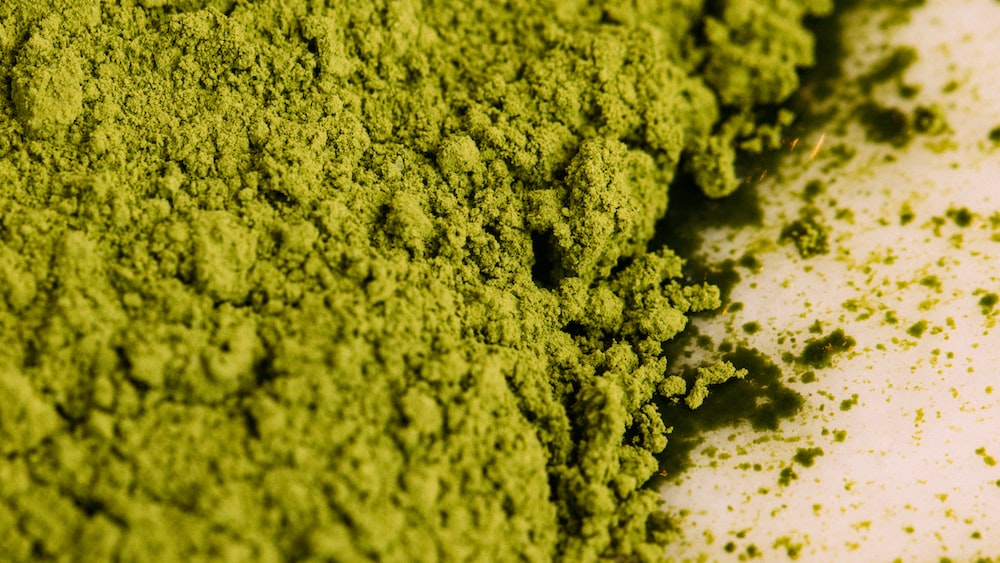
This gorgeous green tea has journeyed all the way from ancient Japan, to grace our tea bowls with an electrifying zest and palate-pleasing umami flavour. So, let’s flip over the stone of hesitation and spill the “tea” on how matcha might commune with your fast.
The Impact of Matcha Tea on Fasting
Buckle up fellow tea enthusiasts, for we are about to examine the collision – or peaceful co-existence – of two health powerhouses: fasting and matcha. Is it a match made in tea heaven or a recipe for fasting disaster? Fear not, we’ve got the tea leaves, and they’re ready to spill their secrets!
Does Matcha Tea Break a Fast?
The hour of reckoning is here. If you’re expecting a clear-cut “yes” or “no”, brace yourself for a wild roller coaster ride on the tea fields. When choosing to stroll down the path of fasting, every calorie counts… Okay, you caught me! That was a tad bit too dramatic for our friendly matcha, which is low in calories.
However, the catch lies in the protein content. Every gram of matcha packs a minute amount of protein, roughly around 300mg per serving. So yes, theoretically, matcha can break a fast due to this protein presence. But before you lock away your favorite tea tin and dismiss your green dreams, let’s look at the elephant in the room: context.
How Matcha Tea Can Enhance Your Fast
In the halls of fasting academia, a negligible amount of protein does not necessarily kick you out of your fasting state. Proponents of fasting, especially intermittent fasting, often allow for minor caloric intake, provided it does not disrupt the fasting benefits – autophagy being a primary one. And our green charmer, matcha, slides right into this space.
Matcha tea, due to its high antioxidant properties and minimal caloric impact, can not merely co-exist with fasting but potentially even enhance the entire experience. The antioxidants could complement the purge that fasting instigates, making the whole process more rewarding.
The Benefits of Matcha Tea During Fasting
There’s more to this union, dear readers. Matcha isn’t just a benign companion to your fasting journey but could potentially be a value-adding adjutant. Aiding energy levels, boosting antioxidants, and even pepping up your metabolism, sip your matcha mindfully, and it could very well be an essential part of your fast. Let’s dive deeper shall we? Say aye to matcha, and perhaps your fast could turn into a highly rewarding tea party!
Boosts Energy
Fasting can sometimes feel like you’ve decided to run a marathon, but someone took the liberty of tying brick weights to your legs. But add some matcha tea into the mix, and suddenly, you’re a tireless, well-oiled machine ready to conquer the world! Matcha tea is a superb energy booster, providing as much as 34mg of caffeine per cup. Not so fast though, before you go bolting to the kitchen, there’s more to this green superhero than merely serving as a caffeine depot.
Beyond its caffeine content, matcha also contains magical amino acid variants, like L-theanine, that promote calm and focus. Think about it this way – fasting can feel like navigating through choppy waters, while a cup of matcha is your smooth sail. The combination of caffeine and L-theanine in matcha helps maintain a steady flow of energy without the jitters or crashes often associated with other caffeine sources.
Moreover, empirical studies have shown that consuming matcha leads to an increase in physical endurance by up to 24%. So the next time you’re fasting and someone asks, “Aren’t you tired?” with a hint of concern (and barely concealed smugness), take a sip of your matcha and flash your best cat-who-got-the-cream grin.
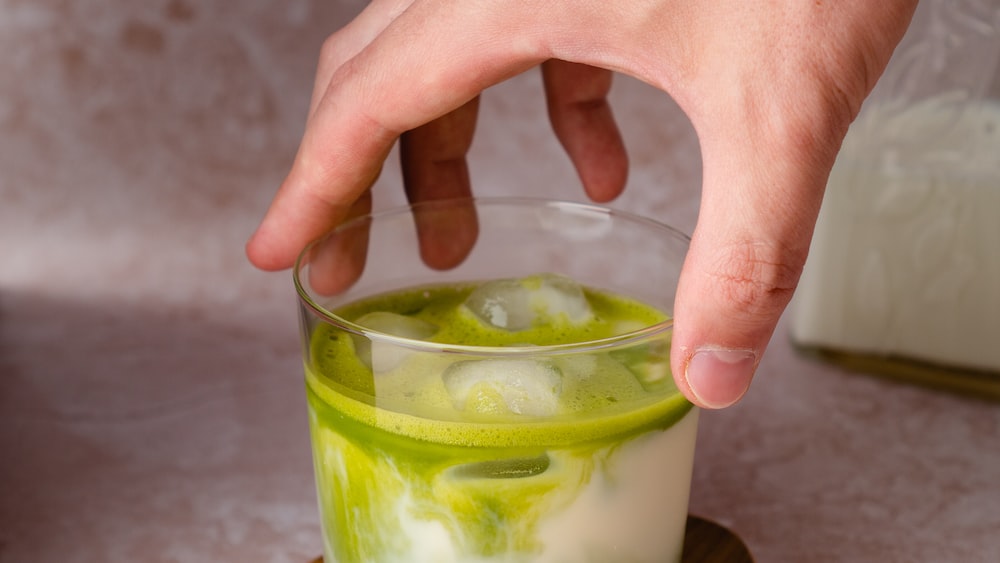
High in Antioxidants
Matcha tea isn’t just an energy-enhancer; it’s also packed with antioxidants – those tiny, powerhouse molecules that ward off free radicals like valiant knights protecting a fortress. One of the predominant antioxidants in matcha is epigallocatechin gallate (EGCG), a compound well renowned for its health benefits.
Research indicates that EGCG can minimize inflammation, improve heart health, and help prevent certain cancers. Each cup of matcha is chock-full of these beneficial antioxidants, providing more EGCG per sip than any other type of green tea. Are you starting to feel like matcha might just be the superhero the fasting world needs?
Stimulates Metabolism
If you’re fasting with weight loss in mind, then hold onto your hats, because matcha has yet another trick up its sleeve! The potent combination of caffeine and EGCG in matcha tea has been proven to boost metabolism, therefore enhancing fat burn. Just visualize the additional calories burning away each time you sip your vibrant green cup of matcha.
Results from several studies suggest that consuming matcha can enhance both resting metabolic rate and fat oxidation, and who doesn’t want a metabolism humming like a well-tuned engine during a fast? So, the next time you’re contemplating a fast, let the metabolism-stimulating power of matcha nudge you in the right direction.
Preparing Matcha Tea for a Fast
The preparation of matcha tea may turn into a Zen-like ritual for you, almost as important as the fasting itself. This section provides some savvy tips to brew the perfect cup of fasting-friendly matcha.
Best Ways to Prepare Matcha Tea
When it comes to preparing matcha, ‘simplicity’ is the magical chant. Heat up some water, not to a boil – but close, around 175°F (80°C). Spoon a small heap of matcha powder (about one to two teaspoons) into your cup or bowl. Pour in the hot water, then whisk briskly with a specially designed matcha whisk (a variant is a regular kitchen whisk) from side to side in a ‘W’ or ‘M’ pattern until a thick frothy layer forms on top.
When done correctly, this process whips up an aesthetic layer of froth that houses the majority of the EGCG content – and voila, your perfect fasting companion is ready!
Ingredients to Avoid While Fasting
Now, matcha may be an incredible ally during your fast, but certain variant additions might kick you out faster than you can say “fasting.” Discovering that your beloved, frothy green cup contained stealthy fast-breaking components can be a gut-wrenching revelation – and we’re not just talking metaphorically.
While sugar is an obvious no-go zone, another ingredient to avoid is dairy milk, as it often contains an excess of calories and sugar that could potentially shatter your fast. Furthermore, several research studies point towards milk’s ability to reduce the absorption of matcha’s antioxidants – and you definitely don’t want to lose those!
So steer clear of seemingly innocent additives like honey, agave, or even certain plant-based milks as they may satisfy your taste buds but sabotage your fasting goals.
Avoid adding ingredients like dairy milk, honey, agave, or certain plant-based milks to your matcha during a fast, as they can break your fast and hinder the absorption of matcha’s antioxidants.
Different Types of Fasts and the Role of Matcha Tea
The glorious world of fasting is not one-size-fits-all. It’s a splendid tapestry of varied patterns, each as unique as you and your wellness goals. Let’s explore how matcha caters to a couple of these different fasting variations.
Water-Only Versus Water-and-Matcha Fast
In the realm of fasting, the perennial question – “water fast or water-and-matcha fast?” – stirs up quite a debate. Traditional water fasting, as the name implies, allows only water. However, in recent years, matcha-augmented water fasting has emerged as an enticing variation. Fans of this modified fast laud the benefits we’ve previously covered while still largely maintaining the fast’s metabolic benefits.
In the end, remember that fasting journeys are personal, what works for some may not work for others. So whether you decide to add this potent green brew to your fasting regime or stick with plain water, know your choices are valued, as they are paving the path to your wellness.
Using Matcha for Intermittent Fasting
Well, my dear tea enthusiasts, it’s time we spill the tea partially-steeped in science on using Matcha for Intermittent Fasting! Intermittent fasting – don’t you just love how it sounds like you’re on a heroic adventure about to conquer your inner hunger demons?
Incidentally, Matcha tea could be the secret weapon you’re looking for. It’s like having Gandalf in your weight loss journey, guiding you through the dark pitfalls of hunger and cravings. This magical green tea from Japan, with its potent mix of caffeine and L-theanine, not only helps to curb your appetite but also keeps you mentally sharp and full of energy during your fasting period. Remember, folks, it’s not a short sprint; it’s more like a marathon. But don’t worry – you’re not alone. After all, we’re in this together. And with Moontower Matcha by our side, the journey might just be full of adventures!
FAQs
1. Does Matcha with Stevia Break a Fast?
In answering whether Matcha with Stevia breaks a fast, it’s essential to consider the impact of Stevia on insulin levels. Stevia, the ‘pixie dust’ of natural sugar alternatives, does not generally raise blood sugar or insulin levels. Therefore, it’s unlikely to disrupt your fast. However, it’s important to remember that everyone’s body reacts differently.
2. Can I Drink Matcha Tea During a Water Fast?
Can you drink Matcha Tea during a Water Fast? Absolutely! Matcha tea, in essence, is just water-soluble green tea leaves. Therefore, it doesn’t technically break your water fast. However, bear in mind that the tea’s nutrient denseness may ignite some digestive processes.
3. What are the Unique Benefits of Matcha for Fasting?
The unique benefits of Matcha for fasting include its combination of energy-boosting caffeine and L-theanine, which provides a stable, sustained release of energy throughout your fast. It’s like adding a turbo boost to your fasting engine, to keep you going without the jitters or crash.
4. Which Matcha Tea is Best for Weight Loss Fasting?
When considering which Matcha tea is the best for weight loss fasting, always opt for high-grade, organic Matcha tea. Moontower Matcha is an excellent choice for its quality, flavor, and health benefits.
Conclusion
Concluding this delightful dive into the world of fasting and Matcha tea feels rather like hosting a fun-filled tea party where suddenly we’ve run out of tea (or in this case – words)!
The journey of exploring how this green tea superhero – Matcha impacts fasting was as riveting as any Agatha Christie-esque plot. We’ve discovered that Matcha adds some depth to your fasting regimen while lending you the strength of Hercules to fast successfully.
Should you want to embark on a fasting adventure, remember this – be watchful of your body, sip joyously on your Matcha tea, and keep an open heart to the unexpected moments of insight that might just hit you amidst the routine!
With a heartfelt cheers to your journey, always here if you need more wisdom on tea and wellness, Zoe.

